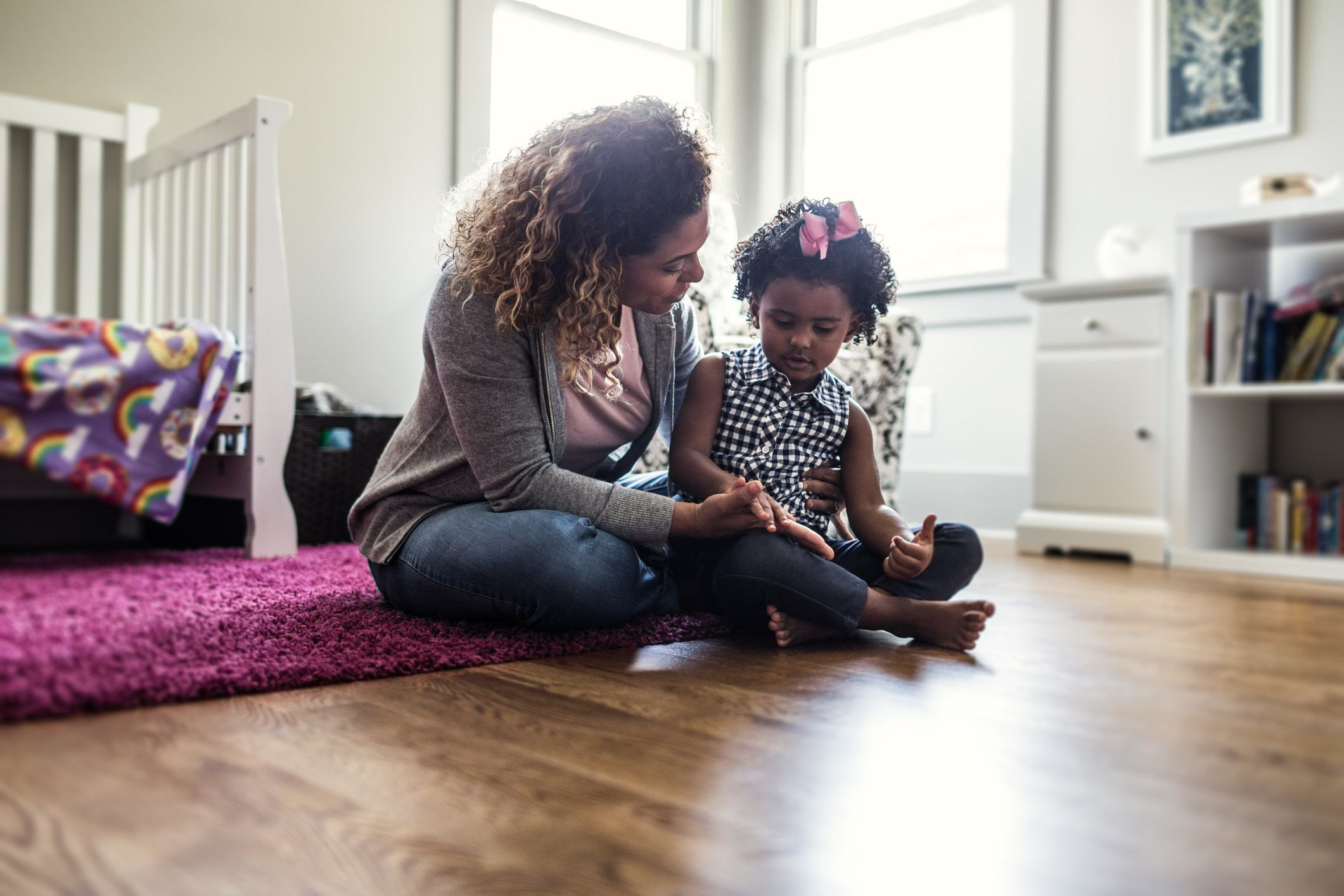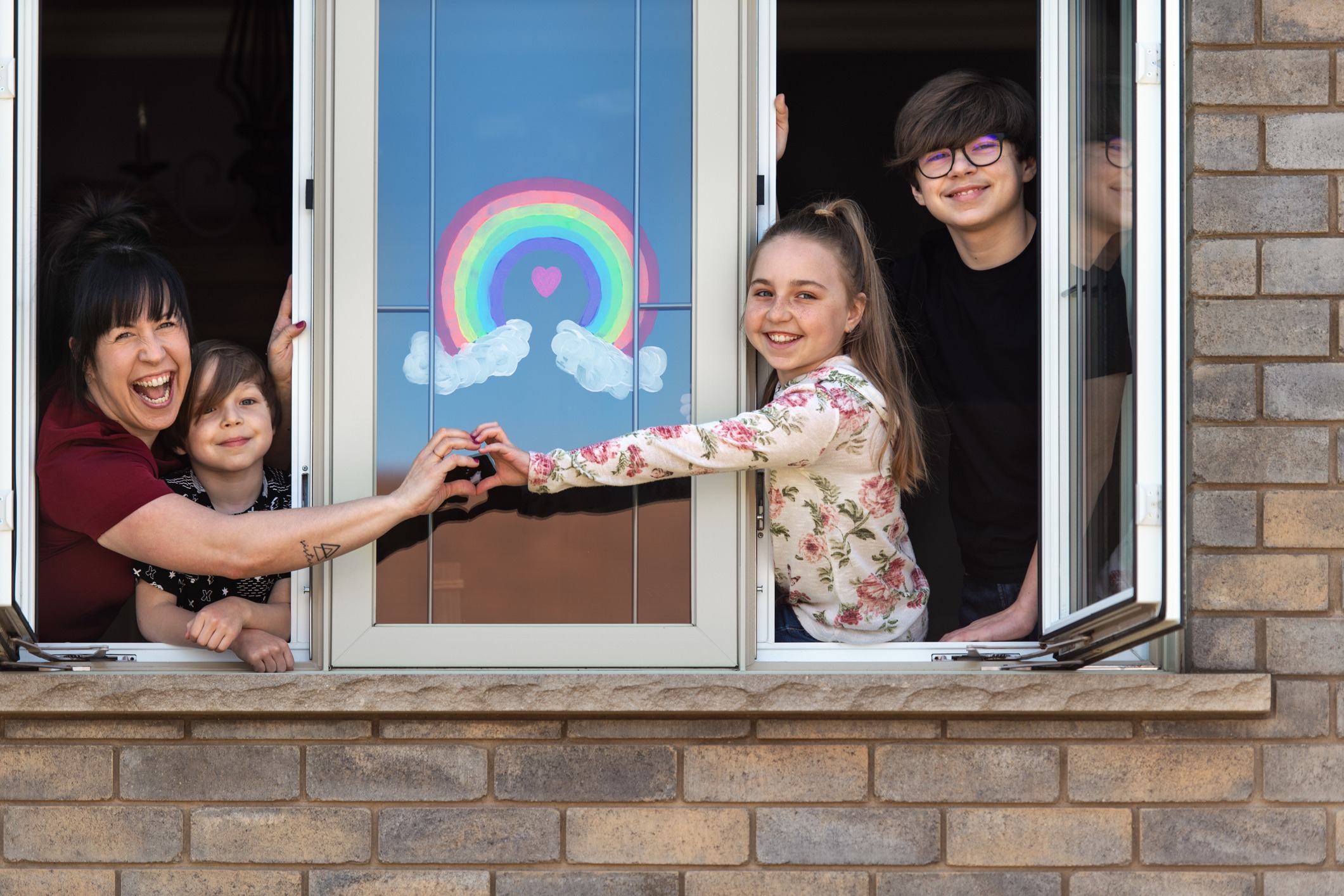4 Ways to Help Ease Your Child’s Coronavirus Anxiety
With the coronavirus an ever-present threat, parents everywhere are doing the best they can to protect their family’s health. Yet, while washing hands and wearing facemasks can help fend off infection, they can’t prevent heightened feelings of anxiety produced by pandemic uncertainty.
Kids are no exception. Many are struggling while stuck at home with the loss of social connection and important milestones like graduation. They may be eating less, sleeping less, and avoiding family interactions. It’s easy as a parent to feel helpless. The good news is, there’s plenty you can do to help your child manage anxiety during this time.
“It’s completely normal for kids to be more emotional right now,” says Dr. Fatima Watt, the Director of Behavioral Health Services at Franciscan Children’s, a Boston-based pediatric hospital where children with complex medical, mental health, and educational needs receive specialized care. “Even the most vigilant parent can’t protect their children from hearing about the coronavirus, so teaching your children how to cope is crucial.”
Not sure how to start? Here are four ways Dr. Watt recommends engaging with your kids to ease their coronavirus anxiety.
Talk About It
A pandemic is a scary subject to bring up around the dinner table, but avoiding it could cause your kids to bottle their emotions and feel overwhelmed. Dr. Watt suggests taking the lead by initiating active conversations where kids feel they have permission to express their feelings knowing they’re being heard. This can also be a time to provide reassurance and let them know what positive steps are being taken in the community to keep people safe. What’s important, Dr. Watt says, is validating their concerns and emotions while acknowledging the experiences they’ve lost, big or small.
“Leave the door open to let them know whenever they need to talk, you’re there to listen,” she says.
Establish a Routine
Elevated uncertainty and staying home all day can easily lead to a collapse of the normal schedule, with late bedtimes and mixed up meals quickly becoming the norm. Regardless of the age of your child, Dr. Watt says parents should block out consistent times for eating, hygiene, academics, and play. Just be sure to leave room for a little flexibility in the schedule and not set expectations too high.
“Children really thrive off of consistency and predictability,” says Dr. Watt. “Building some sort of routine can be helpful for keeping them grounded and less anxious.”
Give Up Control
Raising kids is a challenge in normal times. Now with them home 24/7, it may seem like asserting more control over their lives is the only way to calm the chaos. Yet, Dr. Watt says that giving up some control to your kids and giving them more autonomy—like letting them choose what to eat for dinner and how to stay connected to their peers— is actually the healthier solution.
“It will help them feel like they have a greater sense of control, which can really reduce their stress,” she says.
Take Care of Yourself
Kids tend to mimic the behavior of their parents, the good and the bad. That means that much of your child’s anxiety could stem from your own. Dr. Watt says children especially look up to parents to model healthy behaviors in troubling times, so one of the best ways to help them cope is to learn how to cope yourself. She says not ignoring your own feelings, reaching out to friends for support, and utilizing community resources are great coping skills to pass on.
“The more that we can model healthy coping for our kids, the better off they will be,” she says.
Taking these four steps doesn’t guarantee that your child’s coronavirus anxiety will disappear, but they can be a big help as they adjust to life in the midst of a pandemic. Dr. Watt says to look for moments of emotional vulnerability and joy as signs that your child is managing their anxiety, a skill they can carry for the rest of their lives.
In response to COVID-19, Franciscan Children’s is offering telehealth mental health services to patients including parent consultations and medication management. For more info, please call 617-254-3800 (ext. 3141) or email info@franciscanchildrens.org.
This is a paid partnership between Franciscan Children's and Boston Magazine






